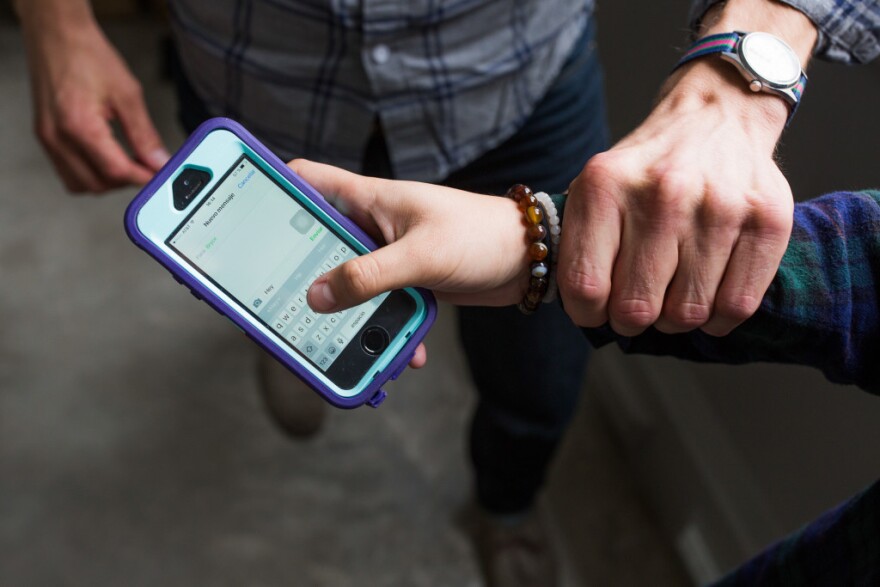A recent study from Florida Atlantic University (FAU) found that a quarter of teens nationwide have reported experiencing some form of online abuse, and that boys are most affected.
Teen digital dating abuse happens in forms of communication such as social media and smartphones. FAU has been researching teen dating violence among middle and high schoolers across the country.
“Most of the stories that I've heard recently truly involve the sending of private pictures, sexual pictures or videos, which then get released,” says Dr. Sameer Hinduja, the lead author of the study and a professor in the School of Criminology and Criminal Justice at FAU. He’s also the co-director of the Cyberbullying Research Center.
February is "Teen Dating Violence Awareness Month." Dr. Hinduja joined Sundial and talked with host Luis Hernandez about how mentoring kids about healthy relationships is one solution to teen digital dating abuse.
WLRN: What does digital dating abuse look like?
HINDUJA: Let's put me right in the center of an example. Let's say that I take my wife, Rachel, out for a date. She loves fondue, so let's say we go to a restaurant and she runs to the restroom. But she keeps her phone on the table. And I pick it up and I'm scrolling through her text messages just to make sure she's not talking with another guy. Now, she shouldn't be. But it's very wrong of me to invade her privacy like that.

Another example would be we're out on date night. And I say, 'Hey, love. I'm going to keep your phone with me in my pocket so that you're not distracted by notifications or texts that are coming in.' That, again, very controlling to physically possess her device. And so it could look like that. It could look like a threat in a cellphone text message. It could relate to a post that somebody makes on social media to make fun of or threaten or humiliate their partner. It could be related to a private message, a private picture, a sexual picture that you take that you've received and trust. But then you posted without permission.
You authored a study and it was published in the Journal of Interpersonal Violence on Digital Dating Abuse. It found that males were significantly more likely to have experienced digital dating abuse. Why are males more likely to experience this form of abuse?
Yeah, we found that an incredibly puzzling. Think about, stereotypically, we may assume that in a heterosexual relationship, females, they're used to drama. They may experience more drama and conflict under their normal interpersonal relationships. Let's say, with other girls. And so they use the medium in the environments within technology to perhaps deal with conflict with their significant others. And so that's perhaps why males might be victimized a little bit more often.
I wondered if you'd heard a story that, you know, from the kids that you talked to and mentor.
Most of the stories that I've heard recently truly involve the sending of private pictures, sexual pictures or videos, which then get released. If you just look at the statistics in middle school and high school, unfortunately, these relationships, don't last and they often don't end well. And so when they don't end well and when hearts have been stomped on, then there's this desire for revenge and then those pictures and images and videos get shared. And so I would say the most frequent form of digital dating abuse that we're seeing as we work with kids has to do with the sending of private pictures and violating of trust.
You're the co-director of the Cyberbullying Research Center, and a lot of the work the center does is about awareness. What kind of education does the center provide?
We provide a host of resources related to prevention and response because we know that many youth-serving adults, whether they're educators or mental health professionals or law enforcement or parents in the community, they get freaked out when it comes to technology and social media. We want to encourage them and empower them and equip them with research based strategies that they can easily implement in the homes, whether it comes to building empathy or resilience or helping with moral development, building better communication, that goes a long way in preventing these problems.


